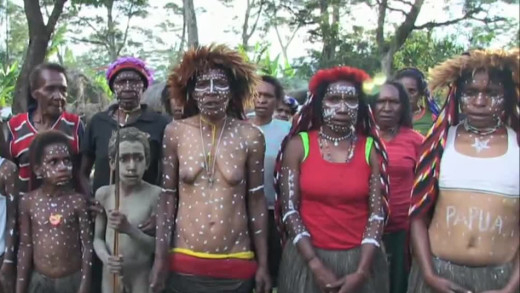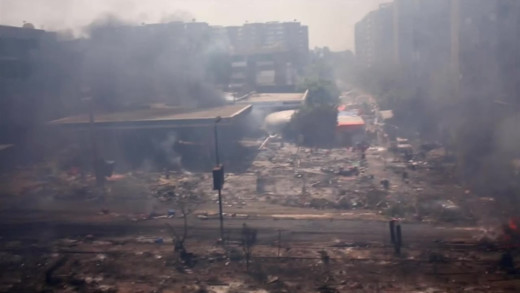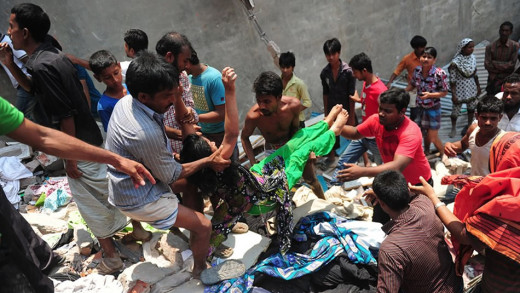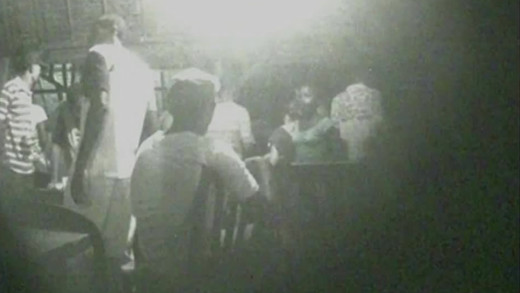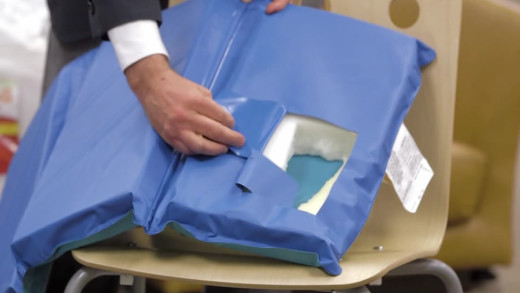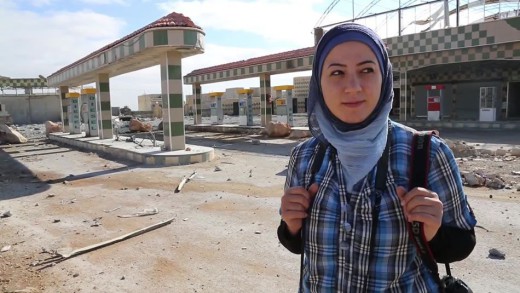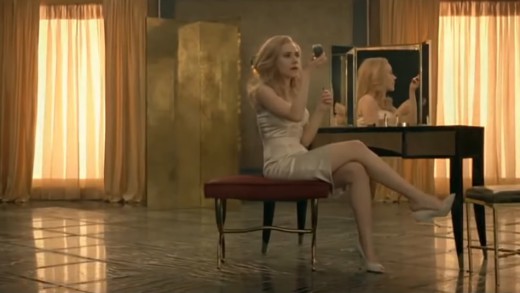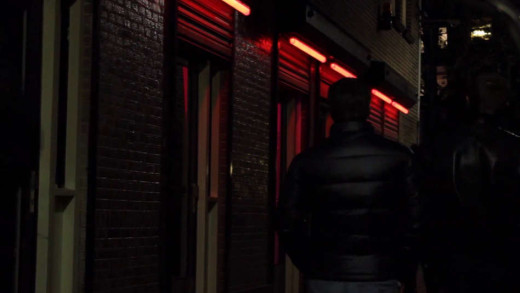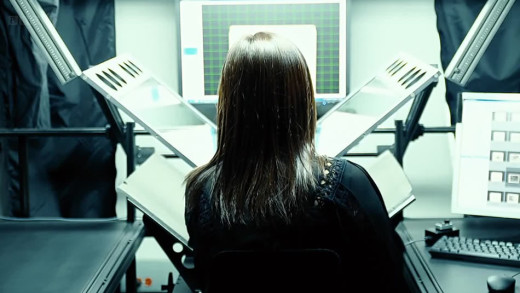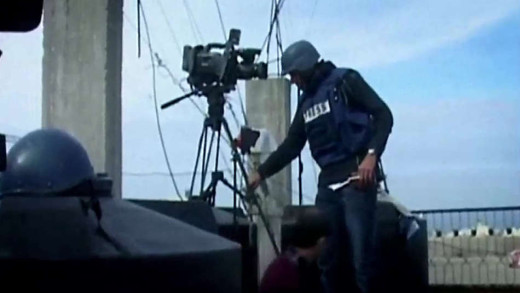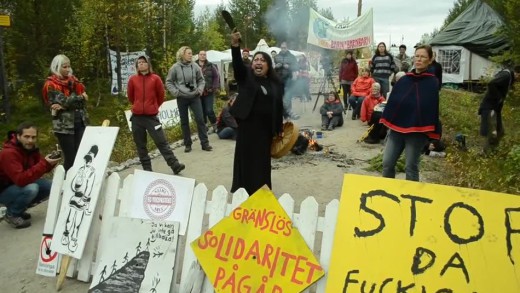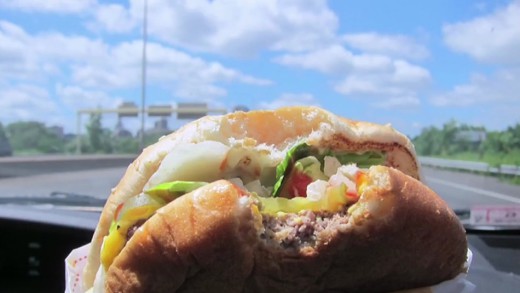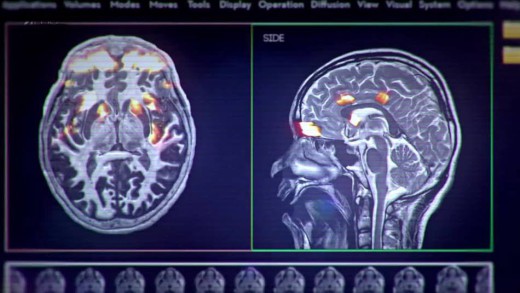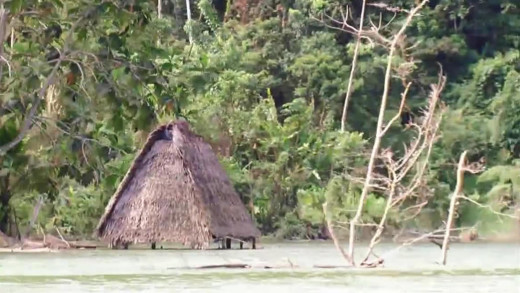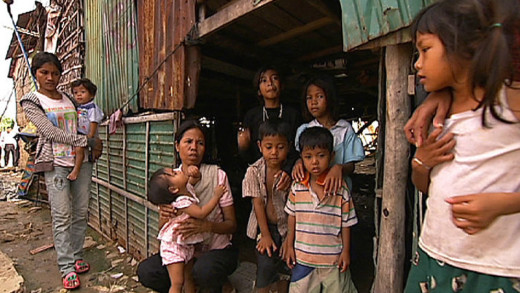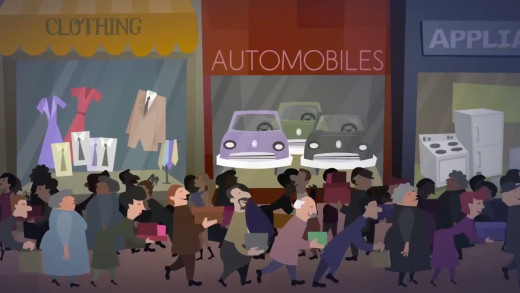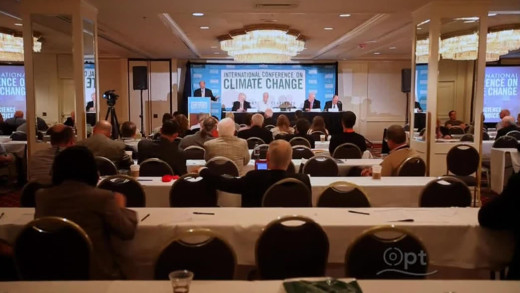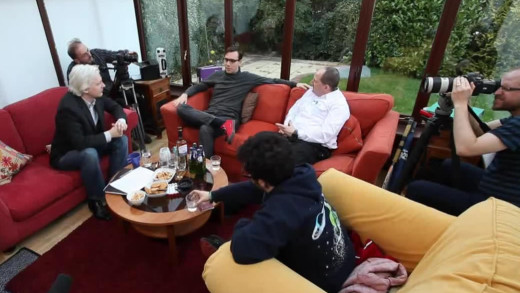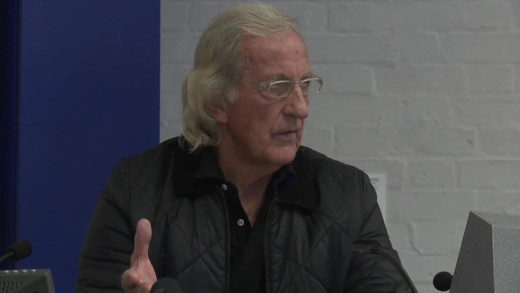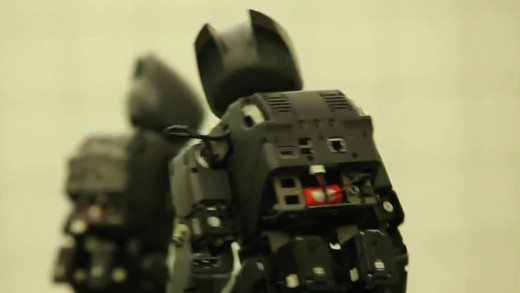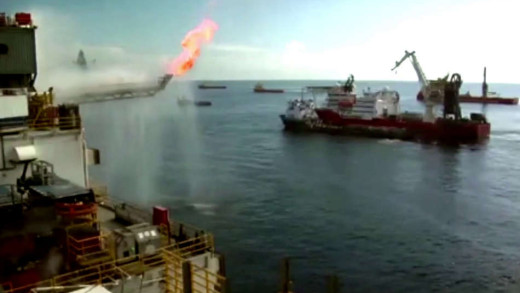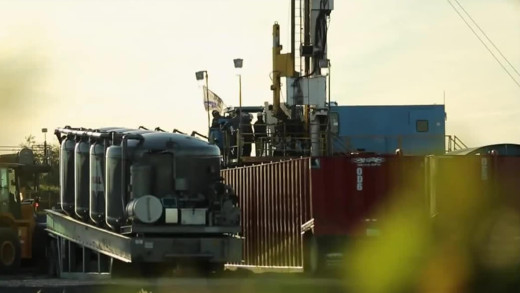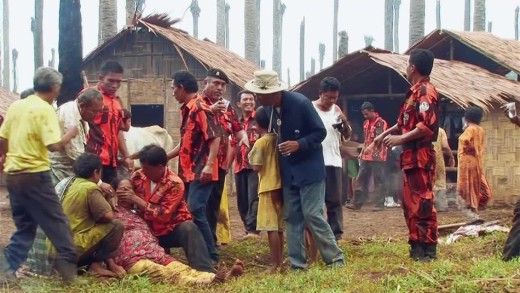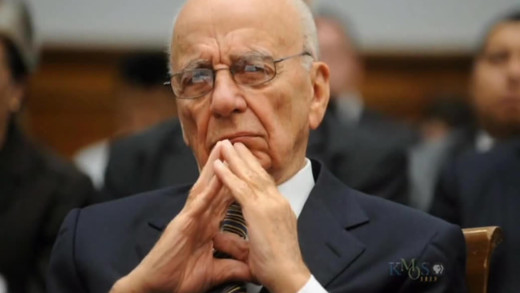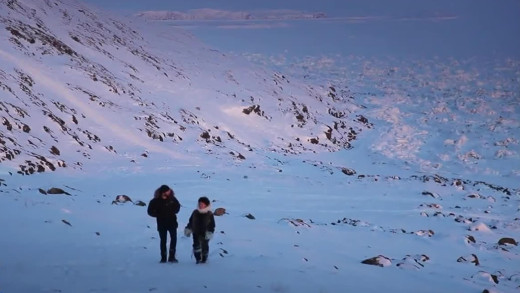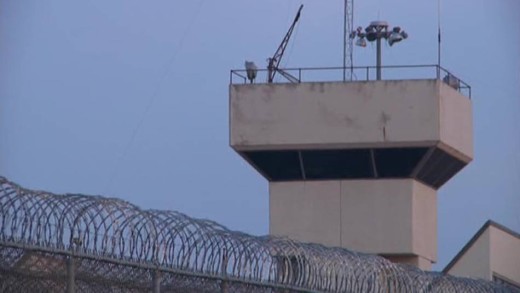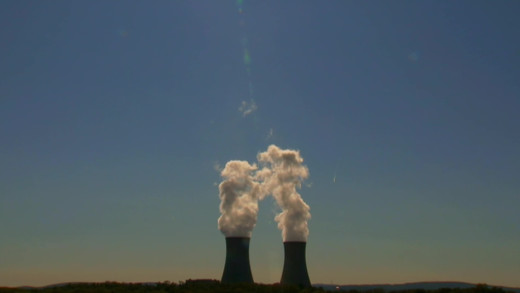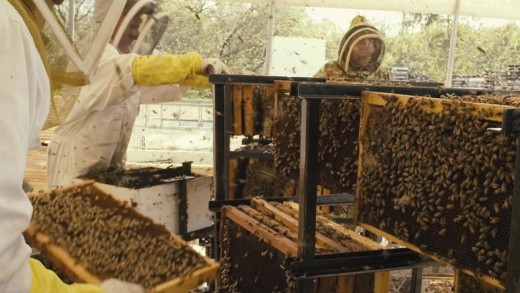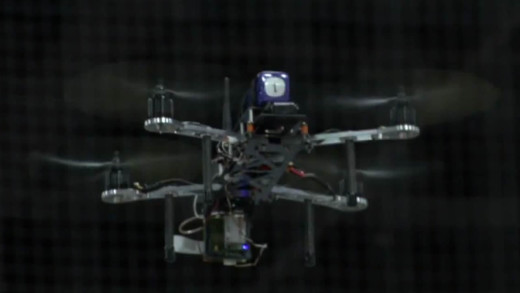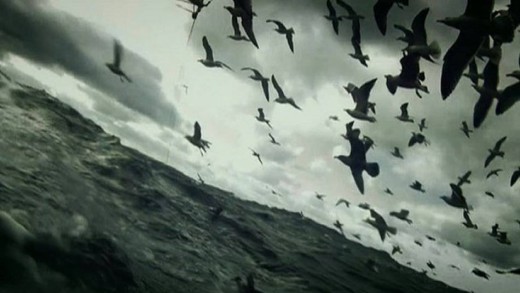Goodbye Indonesia
Goodbye Indonesia investigates one of the world’s most forgotten conflicts—the West Papuan struggle for independence. When the Dutch decolonised their empire after the Second World War, they handed it all to the emergent country of Indonesia—all except the territory of West Papua, which forms one half of New Guinea, the second largest island on Earth. This remarkable landmass split neatly by colonial powers into West Papua and Papua New Guinea, is like few other places in the world…
Egypt in Crisis
Less than three years after a popular uprising that led to President Hosni Mubarak’s ousting, and just one year after Egypt’s first elections, the elected government has been overthrown and the Egyptian military is running the state. And the Muslim Brotherhood—the secretive, long-outlawed Islamist group that came out of the shadows to win the presidency in June 2012—is once again being ‘driven underground.’ Were the Brothers ever really in charge? Or was the Egyptian deep state—the embedded remnants of Mubarak’s police force, Supreme Court and, most of all, military—in control all along? In Egypt in Crisis, we go inside the Egyptian revolution, tracing how what began as a youth movement to topple a dictator evolved into an opportunity for the Muslim Brotherhood to seemingly find the political foothold it had sought for decades—and then why it all fell apart. With Egypt’s hopes for democracy in tatters, and the military-led government violently cracking down, what will happen next?
Fashion Victims
Fashion Victims looks at the real cost of cheap clothes from the conditions of sweat shops in Bangladesh. On 24th April, 2013 more than a thousand people were killed when an eight storey building collapsed in the heart of Bangladesh’s capital, Dhaka. The collapse of Rana Plaza turned the world’s attention to the shocking conditions workers in the country’s clothing industry are forced to endure. In recent years, Australian companies have flooded into Bangladesh to take advantage of lax labour laws and the lowest wages in the world, paid to the predominantly young, female workers in the factories.
Sex and Survival in Madagascar
Using undercover filming, Sex and Survival in Madagascar exposes the booming child sex trade of the 21st Century. In the hub of Madagascar, one of the world’s poorest countries, prostitution is rampant and seen as an unavoidable means of survival. The film shows the complicity and complacency of authorities that do not act to stop this terror, and so the acts of resistance against sex slavery are carried out by the children themselves.
Toxic Hot Seat
Chemical flame retardants are everywhere—in our furniture, our homes, our bodies. But do they work as promised? And are they making us sick? The three chemical companies producing flame retardants would prefer that we not ask these questions, and they’ve spent millions of dollars on lobbyists, publicists and influencers to ensure that we don’t. Toxic Hot Seat wades through the mess to piece together an intricate story of manipulation that details how Big Tobacco skillfully convinced fire safety officials to back a standard that, in effect, requires all furniture to be filled with toxic chemicals…
Not Anymore: A Story of Revolution
Not Anymore: A Story of Revolution is a short film about the Syrian struggle for freedom as experienced by a 32 year old rebel commander, Mowya; and a 24 year old female journalist, Nour; in Aleppo, Syria. The film shows why Syrians are fighting for their freedom, told through the emotional words of two powerful characters whose lives have been torn apart by war.
InRealLife
InRealLife asks: What exactly is the Internet and what is it doing to our children? Taking us on a journey ranging from the bedrooms of British teenagers to the explosive world of Silicon Valley, filmmaker Beeban Kidron suggests that rather than the promise of free and open connectivity, young people are increasingly ensnared in a commercial world. And as this is explained, InRealLife asks if we can afford to stand by while our children, trapped in their 24/7 connectivity, are being outsourced to the web.
The Society of the Spectacle
The Society of the Spectacle is a film based on the 1967 book of the same name by French political theorist and philosopher, Guy Debord. The work traces the development of modern society, in which Debord argues that authentic social life has been replaced with representations, and that the history of social life can be understood as “the decline of being into having, and having into merely appearing.” This emerges from and gives rise to a pervasive and all encompassing spectacle in which relations between commodities have supplanted relations between people, in which “passive identification with the spectacle supplants genuine activity.” The film weaves the text of the original book with modern-day imagery, illustrating many elements of the spectacle, including that “the spectacle is not a collection of images, rather, it is a social relation among people, mediated by images.” This makes the material hard to decipher at times, especially with conflicting subtitles between languages: but this is part of Debord’s goal, to “problematise reception” and force the viewer to be active rather than passive. In addition, the words of some of the authors are “détourned” (hijacked) through deliberate misquoting. The result is a foundational work on the concept of the spectacle and its characteristics, to encourage critical thinking, to build and extrapolate critiques to apply to the wider social scale.
Red Light, Green Light
As nations around the globe attempt to fight sex trafficking, many consider legalising prostitution. Two filmmakers travel across ten countries to explore the issue, attempting to answer the question: “How can we prevent sexual exploitation before it happens in the first place?” Though governments are getting better at prosecuting traffickers and providing aftercare to victims, it is time we begin to ask the question of what lies at the root.
Google and the World Brain
In 2002, quietly and behind closed doors, the Internet giant Google began to scan millions of books in an effort to create a privatised giant global library, containing every book in existence. Not only this, but they claimed they had an even greater purpose—to create a higher form of intelligence, something that HG Wells had predicted in his 1937 essay “World Brain”. Working with the world’s most prestigious libraries, Google was said to be reinventing the limits of copyright in the name of free access to anyone, anywhere. But what can possibly be wrong with this picture? As Google and the World Brain reveals, a whole lot…
The Tax Free Tour
The Tax Free Tour travels the globe to expose the workings of offshore tax havens and the elite banking systems of the world’s billionaires which operate in extreme secrecy. Using examples from multi-national corporations such as Apple Computer and Starbucks, the film traces sizeable capital streams that travel the world literally in milliseconds—all to avoid local laws and paying tax. Such routes go by resounding names like ‘Cayman Special’, ‘Double Irish’, and ‘Dutch Sandwich’. The Tax Free Tour is a sobering look at how the world’s rich live in an entirely different world than the rest of us…
The War Around Us
The War Around Us tells the story of the only two international journalists on the ground in Gaza during Israel’s bombardment and invasion of the troubled Palestinian territory over a three-week period in 2008. With never-before-seen footage and gripping personal testimonies, the film bears witness to Israel’s ongoing siege of Gaza in the wake of its withdrawal in 2005, and pays tribute to the power of journalism and friendship under conditions of enormous conflict and stress. The result is a human glimpse into wartime reporting and life in one of the most besieged places on Earth.
The Gállok Rebellion
During the summer of 2013, a new area of occupied Sápmi (the northern parts of Fennoscandia in Europe) were under attack from the mining industry. If it were not for groups of brave resisters, the test blasting outside Jokkmokk in Lapland, Sweden, would have gone by without incident. The local Sámi people would have once again been exploited, and future generations poisoned without even a debate. But this time, something happened. The Gállok Rebellion tells the story of the resisters in Gállok, and shines a light on views which are not often televised. The film collates the efforts of many groups working together and serves as a call to action, to continue to protect the natural world which is under siege.
Obey
Obey is a video essay based on the book “Death of the Liberal Class” by author and journalist Chris Hedges. The film charts the rise of corporatocracy and examines the trending possible futures of obedience in a world of unfettered capitalism, globalisation, staggering inequality and environmental crisis — posing the question, do we resist or obey?
Esc & Ctrl
Esc & Ctrl is an online series of short documentary films where journalist and filmmaker Jon Ronson explores some aspects of screen culture and the Internet. By exemplifying the concepts of control of information and the screen culture’s reactions to publishing, censorship, viral videos, media attention and manipulation; a small set of stories weave together to pose bigger questions around democracy and open communication in the age of the computers and a corporately mediated virtual world.
Feeding Frenzy
Over the past three decades, obesity rates in the United States have more than doubled for children and tripled for adolescents, and a startling 70% of adults are now obese or overweight. The result has been a widening epidemic of obesity-related health problems. But while discussions about this crisis tend to focus solely on the need for individual responsibility and more exercise, Feeding Frenzy turns its focus squarely on the responsibility of the processed food industry and the outmoded government policies it benefits from. It lays bare how government subsidies designed to feed the hungry during the Great Depression have enabled the food industry to flood the market with a rising tide of cheap, addictive, high calorie food products, and offers an engrossing look at the tactics of the multi billion-dollar advertising industry that makes sure that everyone keeps consuming.
Persons of Interest
Persons of Interest is a four part series where former activists and political dissidents are given their previously secret ASIO files and asked to explain the allegations contained in them. As a result, the series unravels the hidden political and cultural history of Australia that is still being unmasked today in a world gripped by confirmations of mass surveillance abuses by ASIO and other intelligence agencies such as the NSA in the United States. Using the content of the ASIO records themselves along with genuine surveillance footage, this series tells the story of spies, traitors and intelligence intrigue in Australia against a backdrop of the big political events of the 20th century; at a time when fear of Communism, outsiders and threats to the established order fostered the construction of a vast and secret network of surveillance on ordinary people.
The Truth Behind the Click
A behind the scenes look into what happens when you buy from the world’s biggest online retailer: Amazon. Through testimonials of ex-employees and an undercover employee with a camera, the tough conditions for workers are revealed. The film exposes the immense pressure the workers go through, such as racing a computerised clock every step of their shift, and having to walk up to 11 miles a day inside the distribution centres. As more people around the world turn to online shopping with a click of a button, staff members working at Amazon are put under mental and physical stress to deliver out of sight, out of mind.
Terms and Conditions May Apply
Admit it—you don’t really read the endless pages of terms and conditions connected to every website you visit or phone call that you make do you? Of course not. But every day billion-dollar corporations are learning more about your interests, your friends and family, your finances, and your secrets—precisely because of this; and are not only selling the information to the highest bidder, but freely sharing it with the government. And you agreed to all of it. With plenty of recent real-world examples, Terms And Conditions May Apply covers just a little of what governments and corporations are legally taking from Internet users every day—turning the future of both privacy and civil liberties into serious question. From whistleblowers and investigative journalists to zombie fan clubs and Egyptian dissidents, this film demonstrates how all of us online have incrementally opted-in to a real-time surveillance state, click by click.
Porn on The Brain
Martin Daubney walks away from his position as editor of a renowned porn magazine after becoming a father. With his son, now four years old amongst the confusion by contradictory headlines, and driven by the knowledge that his boy will soon reach the age at which most children first see porn—10 years old—Daubney wants to find some answers. How does pornography effect kids? Where is the evidence? Porn on The Brain takes us through the journey, and Daubney discovers that porn has changed from what he remembers as a teenager—today’s porn is extreme, it’s free, it’s pervasive and only one click away, and Daubney is shocked by the content. Porn on The Brain reviews internationally-renowned neuroscientists, leading therapists and educators who are all concerned about the effects on vulnerable teenage brains today of free and easy access to hardcore pornography. The film includes the shocking results of a specially-commissioned survey of teen porn habits, conducted for the documentary by the University of East London; and collaborates with the University of Cambridge to conduct the first study of its kind, scanning the brains of men who feel they are addicted to porn. When will we acknowledge that there is a problem?
Village of The Damned
Away from its busy capital city and famous canal, Panama is one of the world’s most ecologically diverse nations. Yet huge new hydroelectric dam projects now underway are seeing pristine rivers damned and virgin rainforest flooded. The government says it is vital for ‘economic growth’, with international corporate interests rushing into the country, and even the United Nations awarding ‘carbon credits’ on the basis that the resultant energy will be “sustainably produced”. But for the indigenous Ngabe people—whose homes are vanishing under water—it is a catastrophe, and they are fighting back…
We Will Not Be Moved
We Will Not Be Moved documents the unpredictable reality for thousands of Cambodia’s poor that are being forcibly evicted from their houses in the name of urban development. Cambodia’s land ownership was thrown into chaos when Pol Pot’s Khmer Rouge extinguished private title but now money and corruption are playing havoc with the country’s attempts to bring back private property. There is one brave group known as the BK13—a group of 13 women—that are not prepared to let greedy developers take the very, very little they have. But with half a million residents forcibly evicted in recent years, it’s an enormous fight they have on their hands…
Can This Current Way of Life Continue?
Combining graphs and other visual examples in animation, this short film goes through the issues surrounding the collapse of industrial civilisation—by collating the interconnectedness of energy depletion, carrying capacity, population growth, peak natural resource extraction, and other issues with the problems of exponential economic growth on a finite planet. Can this current way of life continue? The film takes us through these problems and also examines some of the many flaws inherent in some proposed solutions, such as ‘change-by-personal-consumer-choice’, or the vague belief in technology as the deus ex machina to save the day. These serious problems need serious solutions and require a radical rethinking of this current way of life that cannot continue indefinitely. Time is short…
Climate of Doubt
Climate Of Doubt is an investigation into the growing forces manipulating public opinion on the scientific consensus of impacts to global climate by industrial civilisation. A massive disinformation campaign is growing from the fronts of government and corporate interests to undermine scientific processes and reshape public perceptions. Climate Of Doubt ventures inside these organisations to demonstrate the strong influence of the global politick on maintaining established denial, and ignoring culpability on the issue of anthropogenic climate change.
Cypherpunks
Cypherpunks is a movement originating from the 1980s aiming to improve Internet privacy and security through proactive use of cryptography. With WikiLeaks being a recent offshoot of the many projects derived from the Cypherpunk movement, WikiLeaks editor Julian Assange talks with three activists from the Cyberpunk world to cover the topics of mass surveillance and social control being tied directly into technology as modern society progressively intertwines with technological progress…
Media and War — Challenging The Consensus
John Pilger talks about the various mainstream media commonalities of today—censorship by omission, information management, Public Relations and the ‘massaging of information’, as well as the clever distractions such as the election of Obama as a war monger in the land of slavery, alongside figures such as Hillary Clinton and Julia Gillard as a false win for so-called ‘feminist ideals.’ Amongst the ongoing wars played by the United States, Britain and Australia, Media And War — Challenging The Consensus is a renewed call to unravel complex propaganda and cut through distractions.
The Secret Robot War
Over the past decade, the United States military has shifted the way it fights its wars, deploying more technological systems in the battlefield than human forces. Today there are more than 7,000 drones and 12,000 ground robots in use by all branches of the military. These systems mean less deaths for US troops, but increased killings and precision elsewhere for the United States war machine. With lethal drone strikes being carried out in secret by the CIA and occurring outside of officially declared war zones such as Pakistan, Yemen and Somalia, the secret use of robots and drones in this way evokes serious questions about the operations of the United States and what this means for the rest of the world as more and more autonomy is developed for these technologies.
Dirty Energy
On 20th April 2010, the Deepwater Horizon oil rig exploded off the Gulf of Mexico in the United States, killing eleven workers, and spewing millions of barrels of oil into the ocean for weeks. Dirty Energy brings to light the personal stories of the Louisiana fishermen and local residents directly impacted by one of the worst environmental disasters in recent history, as they struggle to rebuild their lives and contend with emerging health crises related to the toxic dispersants used to clean up the explosion.
Fracking In America
Fracking In America takes a look at the continuing instances of water contamination and environmental damage occurring throughout the United States as a result of hydraulic fracturing—an industrial process used to fracture rock in the search to exploit natural gas deposits. As the frantic effort to extract gas accelerates, the impact of fracking expands also, with increasing pressures on fresh water supplies, continuing threats to health and wider ecosystems…
The Act of Killing
When the government of Indonesia was overthrown by the military in 1965, the gangsters Anwar Congo and Adi Zulkadry were promoted from selling black market movie theatre tickets to leading the most powerful death squad in North Sumatra. In The Act of Killing Anwar and his cohorts recount and gruesomely re-enact their experiences and some of their killings for the cameras, making horrific scenes depicting their memories and feelings about the killings. But as they begin to dramatise Anwar’s own nightmares, the scenes begin to take over as artforms, leading to confrontations of memories of historical reality. Can the horrific imagination succumb to moral catastrophe in this case? And if sociopaths are not reachable people anymore, the question becomes what we must do to stop them.
Murdoch’s Scandal
Over half a century, Rupert Murdoch’s rapacious business audacity has built one of the world’s most powerful and ubiquitous media empires. But with revelations of bribery, blackmail, collusion with police and government, wiretapping and other invasions on privacy, the empire seems to be showing cracks. The scandal has prompted criminal investigations on both sides of the Atlantic and also broken open the insular world of the Murdoch family, its news executives, and the vast political elite who court their favour. Murdoch’s Scandal tells the story of the battle over the future of News Corporation and the challenging of the extensive media empire…
The Battle For The Arctic
With the United Nations laying out a deadline for 2013 on claims to the Arctic seabed to be exploited for oil, minerals and gas; countries such as Canada, the United States, Russia, Norway and Greenland are all attempting to stake a claim. As the beginning battle for territory intensifies, the rapid disappearance of the Polar ice caps opens up potential shipping routes, which further fuels the blood lust by those in power to exploit the region. The Battle For The Arctic heads to the Far North to see first-hand who and what is threatened, and exactly what is at stake with these final grabs for energy, territory, and power.
The House I Live In
For the past 40 years, the war on drugs has resulted in more than 45 million arrests, one trillion dollars in government spending, and the arrival of the United States as the world’s largest jailer with almost 2.3 million individuals incarcerated. Yet for all that, drugs are cheaper, purer, and more available than ever. Filmed across the country, The House I Live In provides the experience firsthand of those on the front lines—from the dealer to the grieving mother, the narcotics officer to the senator, the inmate to the federal judge—and offers a penetrating look at the profound human rights implications of the so-called war on drugs.
Flirting With Danger
Based on interviews conducted with hundreds of young women, Flirting With Danger examines how the wider culture’s frequently contradictory messages about pleasure, danger, agency, and victimisation enter into women’s most intimate relationships. The result is a candid and nuanced look at how women are forced to grapple with deeply ambivalent cultural attitudes about sexuality and relationships. These interviews are essential viewing for tackling the problematic issues surrounding consent, coercion and sexual violence throughout the culture.
The Atomic States of America
In 2010, the United States announced the construction of the first new nuclear power plant in more than 30 years. But a year later in Japan, a 9.0 magnitude earthquake hit, preceding a cataclysmic meltdown at the Fukushima Daiichi Power Plant bringing the reality of nuclear power back into public consciousness across the globe. For some. Both political parties of the United States ignored this and continued a pro-nuclear agenda, while others, forgetting more of the past, didn’t realise the history of home. The Atomic States of America serves to break this forgetting by travelling from the gates of Three Mile Island, to the cooling ponds of Braidwood to document just some of what has happened and is happening with nuclear power in the United States today. By speaking with communities throughout the country, this film documents arrays of stories of polluted drinking water, government collusion with industry, cover-ups, cancer epidemics and other suppressed stories. Begun more than a year before the disaster in Japan, this film gains a unique before and after perspective, seeking to inspire an honest remembering about just what this culture has done and continues to do for power at the expense of the world.
More Than Honey
With a lens of torturous mechanistic science, as well as the commercial perspective from farmers and commodity bee-keepers alike, More Than Honey is a film about the insanity of industrial agriculture and the consequential collapse of honeybee populations throughout the world. By looking through some of the industrial operations in California, Switzerland, China and Australia, More Than Honey is a visual exploration of colony collapse, drawing attention to the many symbiotic relationships that go unrecognised and uncared for by industrial operations and commercial food practices. If bees are so important to the health of so many other species of animals and plants and foods, how can we stand by and allow them to be killed?
Rise of The Machines
Just as mobile phones and wireless capability dramatically changed the way technology interacts with modern society, drones—or ‘Unmanned Aerial Vehicles’—are set to become the next major influence in technocratic life, directly impacting and seriously expanding the already extensive capabilities of surveillance. Rise Of The Machines takes a look at already developed drone technology and how governments, military and even civilians are rushing to adopt the gadgets which can be purchased off the shelf for just a few hundred dollars and controlled by already existing smart phones. So what will a world of drones look like? And what of the many, serious, unexplored implications on how society will function in a world of drones?
The Power Principle
The Power Principle is a series of films examining the history of the United States and the building of its empire with particular emphasis on the last seventy years of United States foreign policy. The methods that make empire possible are also examined—the politics of fear, the rise of public relations, the ‘Mafia Principle’ and the reoccurring use of fabled enemies, contrasting the Soviet Union and the Cold War alongside the parallels of today with the “War On Terror”. Not only does The Power Principle tie together historical events to revive a common thread, the series may also encourage viewers to reconsider their understanding of historical events and the portrayal of them, showing how those in power play a role in manipulating the collective memory through generations.
Leviathan
Leviathan is an immerse film documenting the toll that commercial fishing continues to take on the life of the ocean. The message is explicit in the imagery of the film, which largely avoids exposition and context; goes on without narration, unfolding largely in the dark of night. Attesting to the power of estrangement and visceral imagery, Heavy-metal music coincides with heavy machinery, grinding gears and chains, to also similarly portray the repetitive hard-work of trawling life, against the collapse of ocean-life.
For Sale — The American Dream
Six years after the housing bubble burst in the United States in 2008, the worst is yet to come. After a recent landmark settlement, major banks have lifted the freeze on foreclosures, with evictions again in full swing. Public housing budgets have been slashed, while the thin line between home ownership and homelessness grows ever more wide. People are angry about the impunity of the banks and some have found innovative ways of fighting back in an age of austerity. For Sale travels to Chicago and California to see how people at the forefront of the crisis are confronting the collapse of the American dream.
